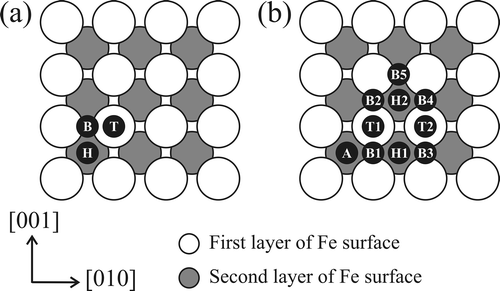Effects of Alkali Adatom on CO and H2S Adsorptions on Fe(100) Surface: A Density Functional Theory Study
슈퍼관리자
2021-05-21
Effects of Alkali Adatom on CO and H2S Adsorptions on Fe(100) Surface: A Density Functional Theory Study
-
Authors :
M. H. Mahyuddin, R. V. Belosludov, M. Khazaei, H. Mizuseki, and Y. Kawazoe
-
Journal :
J. Phys. Chem. C
-
Vol :
115
-
Page :
23893-23901
-
Year :
2011

Abstract
An alkali-added Fe catalyst is commonly used in the Fischer–Tropsch synthesis for fuel production from a mixture of CO and H2 gases. The feed gas, however, also contains H2S gas, which can shorten the activity life of the Fe catalyst. In this study, we have investigated how sodium and potassium affect the adsorption properties of CO and H2S molecules adsorbed on the Fe(100) surface by using a density functional theory approach. It has been found that the presence of Na and K adatoms on the Fe(100) surface promotes the adsorption of the CO molecule and hinders the adsorption of the H2S molecule, and in particular, the K adatom has been found to exert the largest variation effect on the adsorption energies. Through the examinations of local density of states and Bader charge analysis, we have shown that the electrostatic interactions between the alkali adatoms and the molecules are mainly responsible for such promotion and poison effects.















